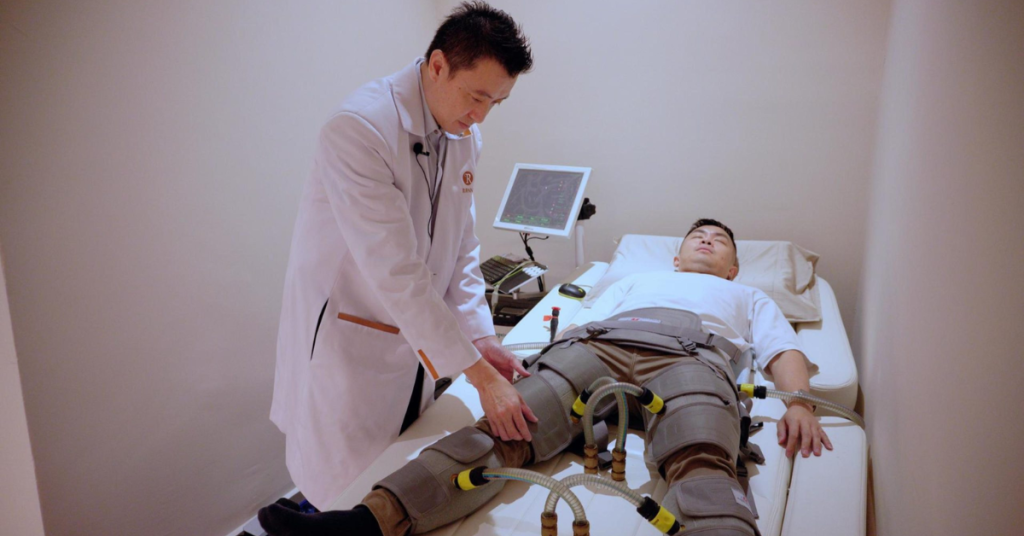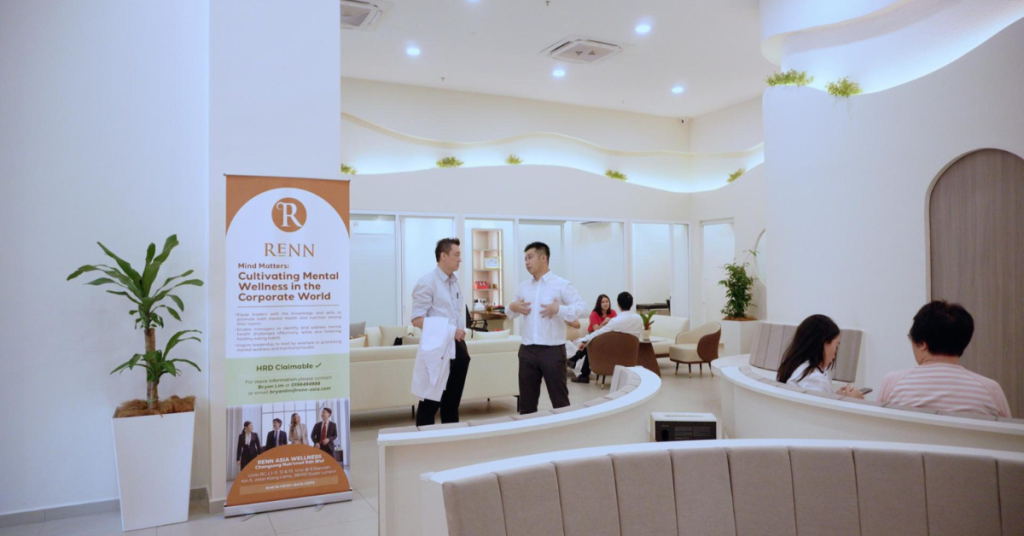[Written in partnership with RENN Asia Wellness, but the editorial team had full control over the content.]
Have you noticed that the wellness industry in Malaysia has been getting crowded?
Supplement brands seem to be everywhere. More and more boutique gyms and fitness centres are popping up, too. People are investing into wellness, from large-scale developments like KL Wellness City to other boutique integrative health clinics.
This boom is a good thing, according to Jonathan Chew, the founder of RENN Asia Wellness. After all, it signals a shift in how Malaysians think about health.
“People are becoming proactive rather than reactive,” Jonathan observed. “They’re more willing to invest in their health & wellness before problems arise. Over the last decade, we’ve seen consumers becoming more open to integrative health options—especially those that combine the best of modern science and traditional wisdom.”
There’s no doubt that wellness is now at the forefront of many Malaysians’ minds. But what’s next for the industry?
The rise of holistic health
Younger generations, Jonathan noted, are especially attuned to global wellness trends thanks to travel and digital platforms. Meanwhile, older generations are looking for ways to reduce dependence on long-term medication.
All in all, the pandemic served as an accelerant, bringing immunity, mental health, and preventive care into sharper focus.
As such, people have begun looking at health more holistically.
“Complementary medicine is no longer seen as a ‘last resort’,” Jonathan said. “It’s now a strategic choice for health optimisation. In Malaysia, it also bridges the gaps left by both mainstream medicine and other traditional approaches.”

He believes that there are a couple of things in holistic medicine that will be further developed:
- Personalised medicine through genetic, microbiome, and biomarker testing.
- Regenerative therapies, including stem cells, exosomes, and peptides.
- Lifestyle-integrated preventive care, where movement, nutrition, mental wellbeing, and bio-tracking are part of daily life.
- Nutritional & Functional Medicine in evidence-based ways, which has the potential to reverse chronic health disorders instead of taking medication to manage symptoms for life.
Prevention is cure
By 2030, Jonathan predicts, preventive treatments will be at the heart of healthcare. Without them, the cost of a treatment-only model will be unsustainable. Data-driven preventive care, he argued, will be key to reducing disease burden, extending health span, and improving overall quality of life.
“Preventive treatments will be central. By 2030, healthcare costs will be unsustainable if we continue a treatment-only model. Preventive care — supported by data-driven assessments — will be the foundation for reducing disease burden, extending health span, and improving quality of life.”
He also foresees shifts in consumer behaviour: Malaysians will start regular wellness screenings at younger ages, see wellness as a continuous lifestyle instead of a one-off fix, expect integrative solutions from their providers, and place equal importance on mental and physical health.
Malaysia at the forefront of health tourism
Interestingly, Malaysia has become quite the destination when it comes to medical tourism. For those who have never heard of the term, medical tourism refers to the practice of travelling to a different country to receive medical care.
This is typically because the treatment is unavailable or more expensive in one’s home country.

And RENN Asia Wellness wants to be a part of this, too. In particular, they aim to be a destination of choice for high-quality, personalised, holistic care.
According to Jonathan, the centre already attracts both international clients and Malaysians from other states, with programmes designed for both intensive short-term stays and longer-term follow-ups.
Malaysia, Jonathan believes, has what it takes to compete with established wellness destinations like Thailand and South Korea.
“We have world-class medical facilities, skilled practitioners, competitive pricing, and our hallmark cultural hospitality,” he said. “The key is better integration between healthcare, hospitality, and tourism, along with stronger international marketing. If we can address these gaps, Malaysia can be a serious contender.”
From personalised therapies to wellness tourism, the future Jonathan envisions is one where Malaysians take a proactive, integrated approach to their health before problems even arise.
And in that future, “wellness” won’t just mean an occasional Pilates class or a supplement bottle on the shelf—it’ll be a fully embedded way of life.
- Learn more about RENN Asia Wellness here.
- Read other articles we’ve written about Malaysian startups here.
Featured Image Credit: RENN Asia Wellness
